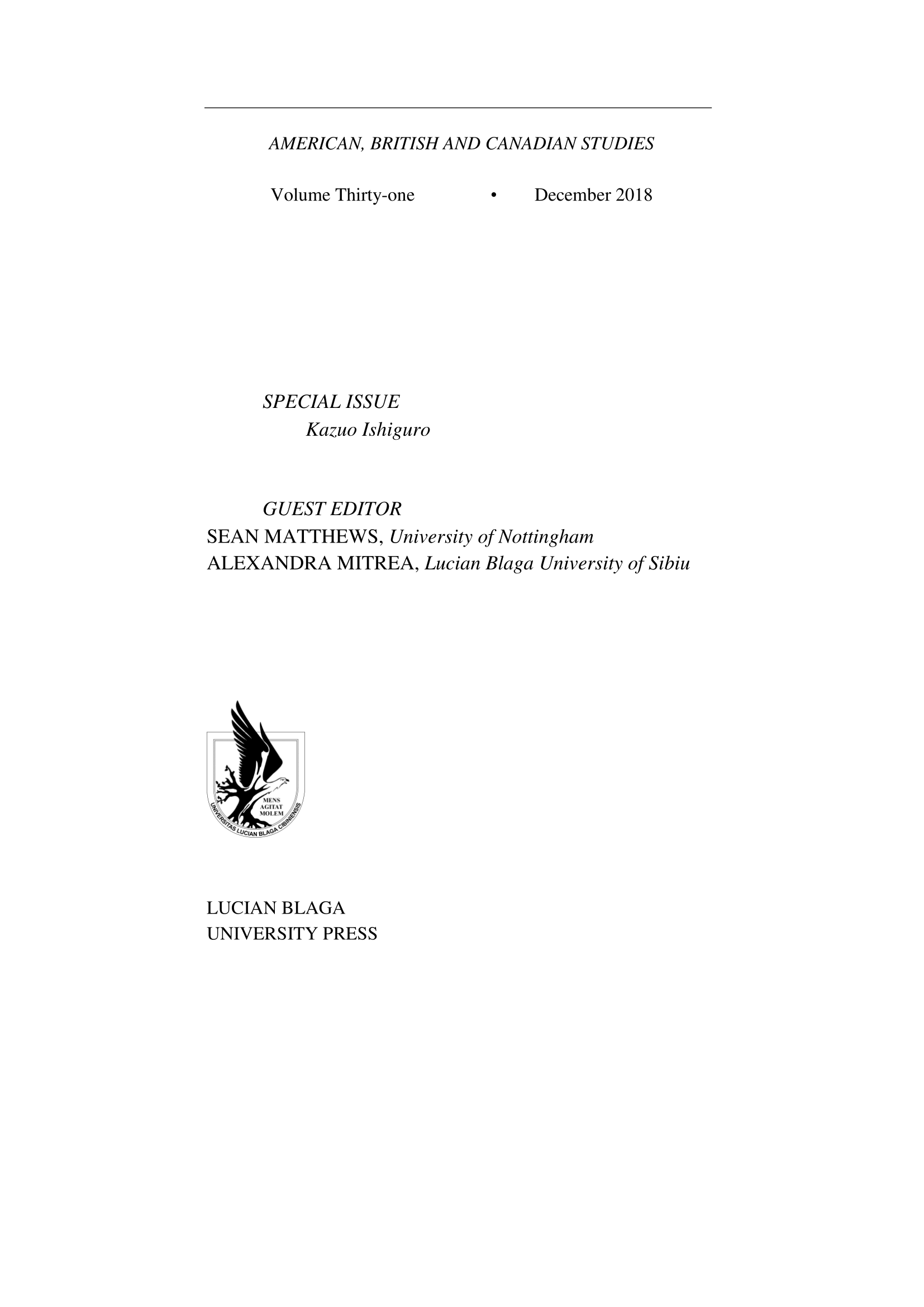Precarity as Personhood in Kazuo Ishiguro’s Never Let Me Go
Precarity as Personhood in Kazuo Ishiguro’s Never Let Me Go
Author(s): ANGELA RIDINGER-DOTTERMANSubject(s): Anthropology, Sociology, Novel
Published by: Editura Universitatii LUCIAN BLAGA din Sibiu
Keywords: Cloning; disability; eugenics; asylums; precarity; forced sterilization; trash aesthetic;
Summary/Abstract: Kazuo Ishiguro’s Never Let Me Go lures readers into a dystopic world that has the artifice of a country boarding school. When the characters to which readers have become attached are revealed to be clones raised for organ harvesting, the novel forces the readers to confront questions about what it means to be human, and at what cost humanity is willing to preserve itself. In this science fiction narrative about cloning, Ishiguro invokes multiple representations of the disabled body: the clones have been created, to ameliorate disability from the rest of society. Their organs are harvested to forestall the inevitable disabilities that the ailing or aging body will experience. The novel also replicates the social apparatuses that have traditionally been used to contain and eliminate disability. Reading Ishiguro’s narrative of cloning from a disability studies perspective reveals the novel’s use of defamiliarization as a literary technique to examine both the ideological constructions of disability and the physical structures that have contained disabled bodies during the nineteenth and twentieth centuries. Finally, approaching Never Let Me Go from this critical perspective reveals the novel’s answer to the central question it poses: What does it mean to be human?
Journal: American, British and Canadian Studies
- Issue Year: 2018
- Issue No: 31
- Page Range: 65-85
- Page Count: 21
- Language: English
- Content File-PDF

